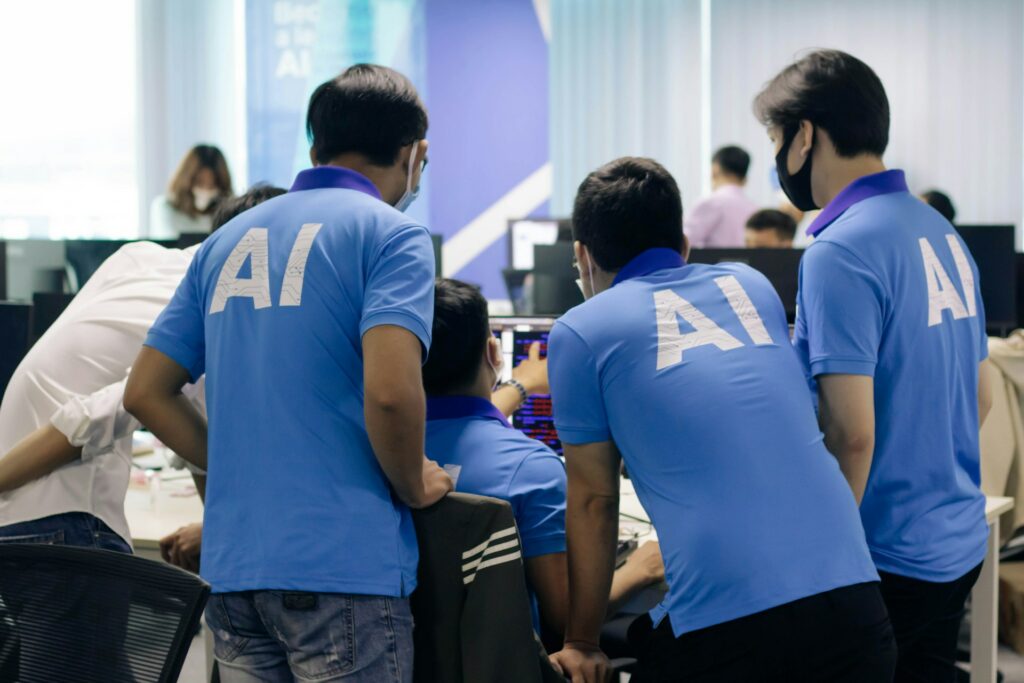The Rise of Virtual Assistants Powered by Artificial Intelligence in Everyday Life

The Rise of Virtual Assistants Powered by Artificial Intelligence in Everyday Life
Artificial intelligence (AI) has quietly revolutionized the manner in which we go about our daily routines, communicate, and obtain information. Artificial intelligence (AI)-powered virtual assistants, which have become an essential part of contemporary life, are among the most conspicuous uses of AI. These digital assistants, which range from smartphones and smart speakers to productivity aids for the office, are transforming the way that we manage our calendars, take care of our homes, and connect with technology. In 2025, virtual assistants will no longer just be considered a convenience; they will have become an essential component of everyday efficiency and digital connection.
What Exactly Are Virtual Assistants That Are Powered by Artificial Intelligence?
Software programs that are meant to execute activities or services for users based on voice commands, text input, or automated procedures are known as artificial intelligence (AI)-powered virtual assistants. In order to comprehend the intentions of users and provide help that is relevant to their needs, they make use of natural language processing (NLP), machine learning, and contextual awareness. The following are some examples of capabilities:
- The administration of calendars and schedules
- Sending out notifications and reminders to people.
- Controlling gadgets in a smart home.
- Offering advice, providing suggestions, or giving information about routes
Integration into Daily Life
Virtual assistants are becoming more and more integrated into several facets of daily life, including:
- Smart Homes: The ability to control lighting, thermostats, security cameras, and appliances from anywhere in the world.
- Mobile Devices: Providing navigation, reminders, and support while on the move.
- Productivity in the Workplace: The creation of meeting schedules, the writing of emails, and the summarization of papers
- Entertainment: Providing recommendations for podcasts, streaming material, and music that are customized to suit the tastes of the individual
- These linkages make artificial intelligence assistants very necessary for reducing the amount of time spent on mundane tasks and for optimizing processes.
Individualized Support and Education
The AI assistants that are available now are quite individualized, since they learn from the behavior of their users over time:
- Analysis of behavior: understanding the preferences, routines, and most frequented sites of individuals.
- Predictive Recommendations: Offering advice on activities, material, or schedules to users before they ever ask for it.
- Adaptive Interaction: Tailoring replies and communication style to match the patterns of the individual user.
- This ongoing process of learning results in a relationship that is more natural and intuitive.
Artificial Intelligence Assistants in the Medical Field
Artificial intelligence (AI) virtual assistants are being used more and more in healthcare for both routine management and expert support:
- Medication Reminders: Making Certain That Patients Follow Their Prescriptions
- Tracking Symptoms: In order to have a deeper understanding of one’s health, one should keep a record of and monitor health measurements.
- Telehealth Assistance: Scheduling appointments, giving pre-consultation information, and triaging patient queries
- These applications improve patient care, minimize administrative costs, and boost health outcomes.
Applications for Business and Productivity
Artificial intelligence helpers are enhancing cooperation and productivity in professional settings:
- Meeting Management: Scheduling meetings, issuing invitations, and recommending the most convenient times to meet.
- Drafting Emails and Summarizing: Minimizing the amount of time spent on communication activities that are repetitive in nature
- Data Retrieval: The process of rapidly locating pertinent documents, analytics, or reports.
- Companies that include artificial intelligence (AI) assistants into their everyday routines see increased productivity and more efficient operations.
Difficulties and Factors to Take into Account
Artificial intelligence (AI) virtual assistants are not without their problems, despite the advantages they offer:
- Concerns Regarding Privacy: When it comes to the collection and processing of personal data, it is essential to have both safe systems and openness.
- Dependency Risk: Over-reliance might diminish self-sufficiency in work management.
- The ability to comprehend orders that are complex or unclear is still a constraint that must be overcome.
- Accessibility: Not all users have the same level of access to products or services that are driven by artificial intelligence (AI).
- In order to guarantee that adoption is secure, ethical, and fair, it is essential that these problems be addressed.
The Future of Virtual Assistants That Are Powered by Artificial Intelligence
In the future, virtual assistants are anticipated to evolve into ever more advanced and integrated systems:
- Proactive assistance involves anticipating requirements based on the current environment and past trends.
- Emotional intelligence is the capacity to recognize the emotions or feelings of users in order to provide replies that are more compassionate.
- Seamless integration across several devices: functioning across smartphones, wearables, automobiles, and smart homes.
- Applications Tailored to Specific Industries: Custom assistants for the fields of customer service, banking, healthcare, and education.
- The development of virtual assistants suggests that we are moving closer to a day when we will have artificial intelligence (AI) companions who are very individualized, aware of the context, and proactive.
Artificial intelligence (AI)-powered virtual assistants are no longer seen to be devices from the future. Instead, they are seen as practical tools that are transforming the way we go about our everyday lives, our job, and our personal management. These assistants provide improvements in productivity, convenience, and even health outcomes by automating chores, delivering advice at the right moment, and integrating smoothly with technological ecosystems. Virtual assistants will become more intelligent, more intuitive, and more necessary as artificial intelligence (AI) continues to improve. This will radically change the way people engage with technology and manage their daily lives.







